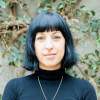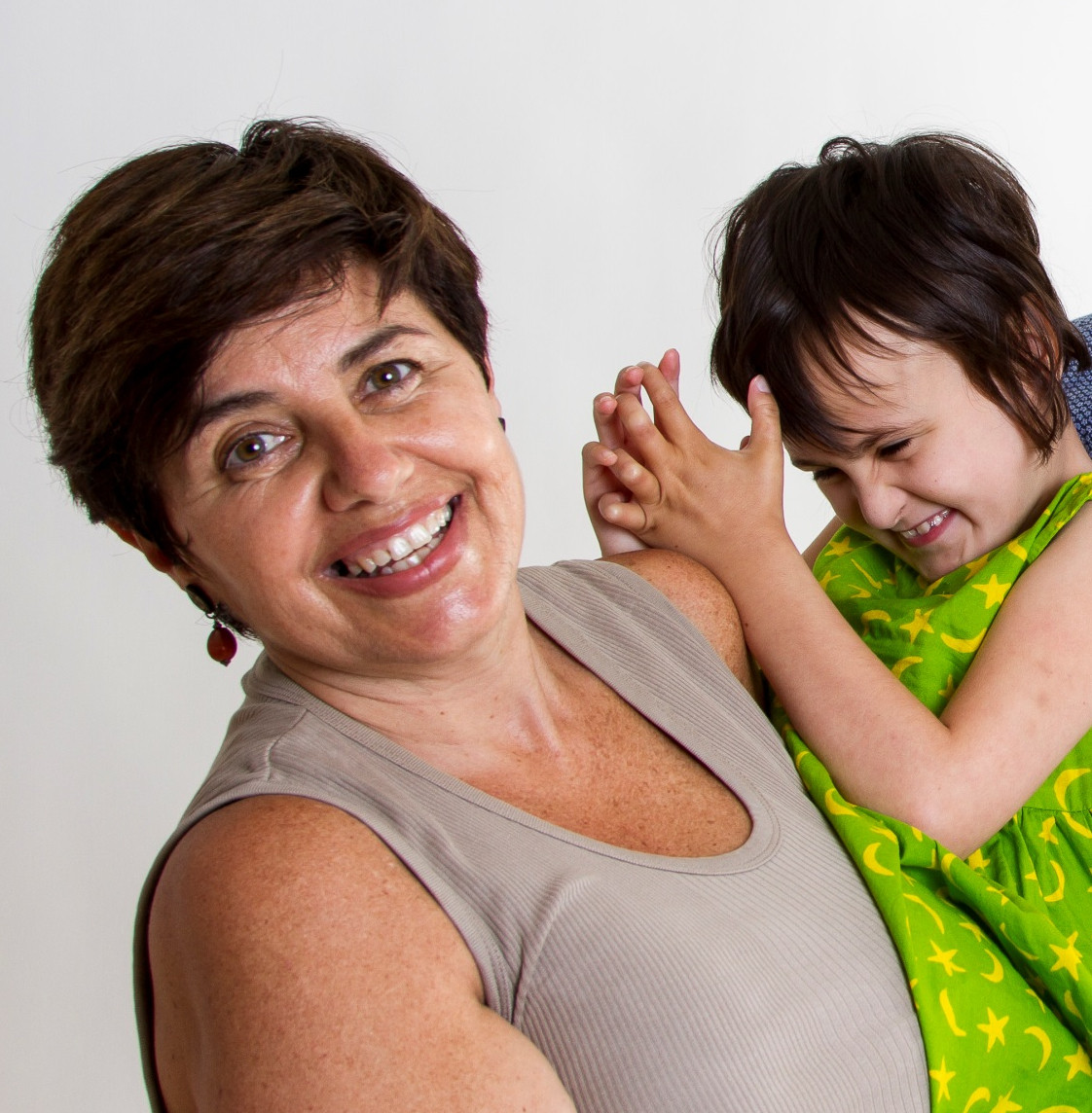
A world of sensations: Bruna’s story

Bruna is 12 years old and is affected by an ultra-rare genetic syndrome that causes severe refractory epilepsy, cognitive and motor retardation — she is not able to speak or walk — and severe visual impairment. When Natàlia was pregnant, doctors noticed that there was something wrong with the baby. When Bruna was born they observed that the upper phalanx of her thumb had doubled its size and the MRI showed hypoplasia of the corpus callosum. Hypoplasia occurs when the nerve tract that joins both cerebral hemispheres is not fully formed, as is Bruna’s case. Under this condition, there is no communication between the two hemispheres and they cannot work in a coordinated manner.
When Bruna was 3 years old a molecular analysis revealed that she had a 19p13.3 deletion. This means that Bruna is missing a small fragment on one of the arms of chromosome 19. The loss of that set of genes has shaped her brain malformation and the rest of her symptoms. This pathology is ultra-rare and there are very few cases known in the world. That is why Natàlia and her husband Yann believe that it is vital to create a network of support, information and resources that includes all the affected families. "When you know what is going on internationally at the research and the healthcare level you don’t feel so alone", says Natàlia. "At the moment we have no contact with anybody with Bruna’s diagnosis as but we are in touch with other families of children with disabilities".
Bruna attends a special school for children with multiple disabilities and severe visual impairment since she was 3. She goes to physiotherapy 2 afternoons a week. She also visits a wide range of medical units — every 2 weeks: chronic disease management unit, neurology, gastroenterology, immunology, endocrinology, rehabilitation, traumatology, pulmonology, dentistry, ophthalmology and nutrition.
“Our day to day is complicated due to the complexity of her different pathologies. Despite this, she is a happy and loving girl living in a world of sensations — when she doesn’t have epileptic seizures”
Natàlia relates that, at first, she faced her daughter's disease in disbelief. “You don’t look the disease in the eye, you tell yourself `that’s not me´ but little by little you realize that it is definitely you, really you in fact... Then you start getting into this rare disease world despite not being prepared". She says that eventually you end up assimilating the situation. “You realize that you must definitely fight for your daughter’s well-being, you get up and fight, you shout, you cry, you laugh, you get excited, you prioritize, you become pragmatic, immune to comments and to your own weaknesses because you can’t afford to throw in, although that’s all you really want to do. But you also learn to be happy with the little things: with a smile, a hug or babble from your daughter, or just when you see her calm and relaxed, enjoying a song or a story and you know that she is not suffering”.
And, as they say, you always learn from everything in life. “In the wake of Bruna's disease, I have learned to prioritize my efforts, give value to small things and transform small advances into great achievements. I’ve also learned to live in the moment and, above all, to unconditionally love our daughter against all odds”.
Despite all this learning, a disease like Bruna's is not easy to assimilate. “My husband is more of an introverted person and I use to express my emotions but we both go on the same train and travel together on this difficult journey”. Natàlia says she would have liked Bruna to have a sibling. "Surely living with him or her would have been enriching for everyone".

Information on Bruna's disease is very scarce, which is very common in the rare disease world. That is why Natàlia mentions research as essential in cases her daughter’s: “It’s the only way to advance in potential individualized therapies or in medicines that help her have a better quality of life”. She also hopes that, in the future, research will prevent these genetic mutations from occurring in children before they are born.
Natàlia admits that she is not especially into social networks, and although she has Instagram and Facebook profiles she contacts other families and groups of mothers through WhatsApp. When asked about Share4Rare, she affirms that the project that can bring many good things to families like hers:
“Share4Rare makes rare diseases visible, creates an international community of patients... Knowing that there are other families in the world if not with the same diagnosis, at least with similar symptoms and pathologies is so important for us..."
"I also think that it can provide updated information about open lines of research or projects focused on the disease that affects us”. She also stresses the importance of benefiting from other families’ experience. “I can also contribute with my practical and emotional experience during all these years of living with the reality of a daughter with functional diversity caused by an ultra-rare disease”.
Do you know someone affected with a 19p13.3 deletion? If you know somebody with this rare syndrome, do not hesitate to join Share4Rare. Help us create the largest community of rare disease patients in the world!
